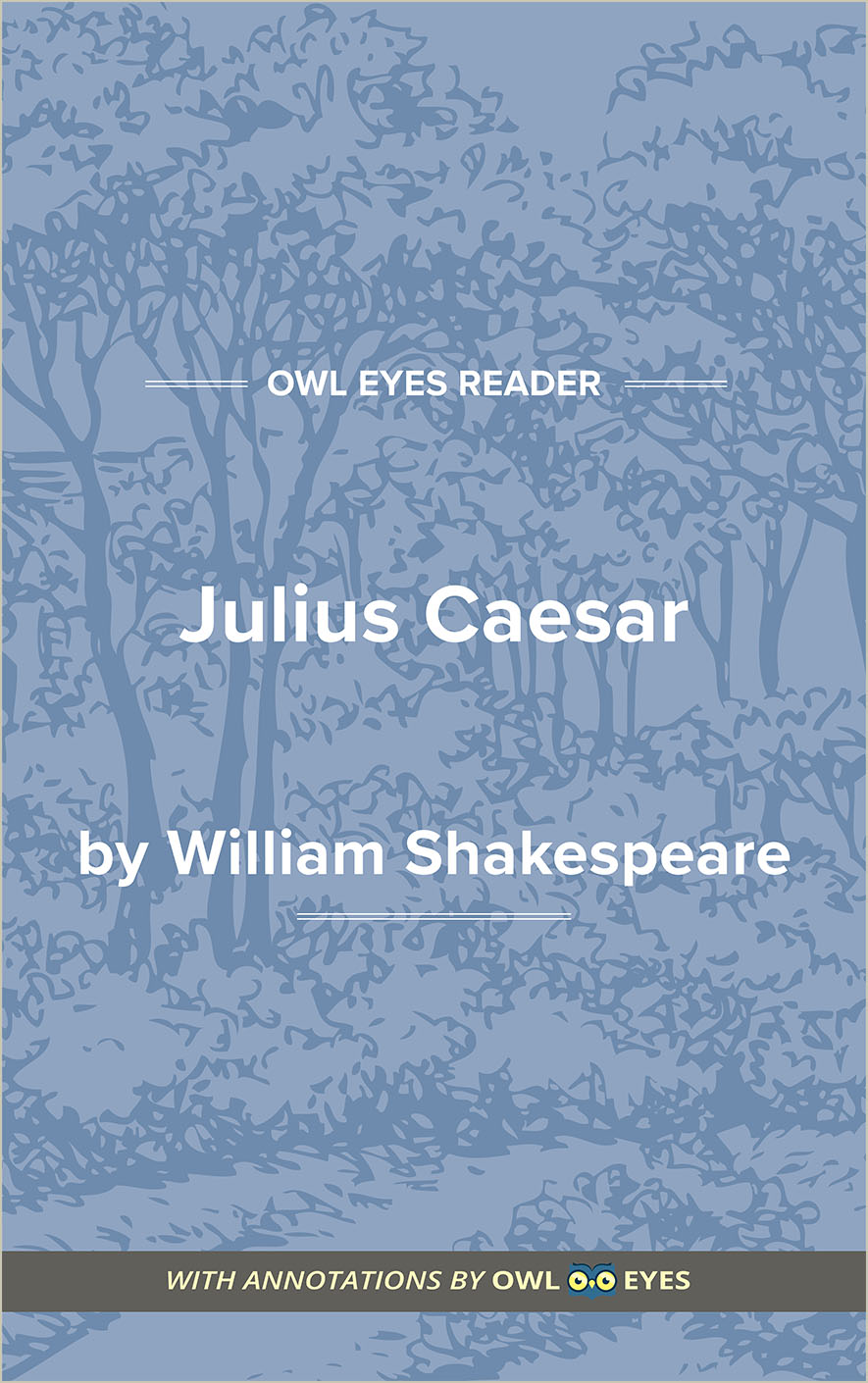Analysis Pages
Plot in Julius Caesar
Shakespeare’s Julius Caesar is based on historical accounts of the assassination of Julius Caesar in 44 BCE. After a series of successful military campaigns and the defeat of Pompey, Julius Caesar rose into a dictatorial role. A group of Roman politicians—namely Cassius and Brutus—found Caesar’s rise to power alarming. They sought to restore balance to the Roman government by assassinating Caesar, which they succeeded in doing on March 15, 44 BCE. The assassination threw Rome into a state of upheaval. Mark Antony and Octavian Augustus formed a resistance, and defeated the forces of Brutus and Cassius at the Battle of Philippi.
Plot Examples in Julius Caesar:
Act I - Scene II
🔒"I have heard Where many of the best respect in Rome, Except immortal Caesar, speaking of Brutus,(65) And groaning underneath this age's yoke, Have wish'd that noble Brutus had his eyes...." See in text (Act I - Scene II)
Act III - Scene I
🔒"thou shalt discourse(315) To young Octavius of the state of things...." See in text (Act III - Scene I)
"My credit now stands on such slippery ground, That one of two bad ways you must conceit me, Either a coward or a flatterer...." See in text (Act III - Scene I)
Act IV - Scene I
🔒"And bay'd about with many enemies;..." See in text (Act IV - Scene I)
"Is it fit, The three-fold world divided, he should stand(15) One of the three to share it?..." See in text (Act IV - Scene I)
Act IV - Scene II
🔒"Hath given me some worthy cause to wish Things done undone;..." See in text (Act IV - Scene II)
Act IV - Scene III
🔒"Let me tell you, Cassius, you yourself Are much condemn'd to have an itching palm,..." See in text (Act IV - Scene III)
Act V - Scene I
🔒"If we do meet again, we'll smile indeed;(130) If not, 'tis true this parting was well made...." See in text (Act V - Scene I)
Act V - Scene III
🔒"This day I breathed first: time is come round, And where I did begin, there shall I end;(25) My life is run his compass...." See in text (Act V - Scene III)
Act V - Scene IV
🔒"There is so much that thou wilt kill me straight: Kill Brutus, and be honor'd in his death...." See in text (Act V - Scene IV)
Act V - Scene V
🔒"Caesar, now be still; I kill'd not thee with half so good a will...." See in text (Act V - Scene V)

